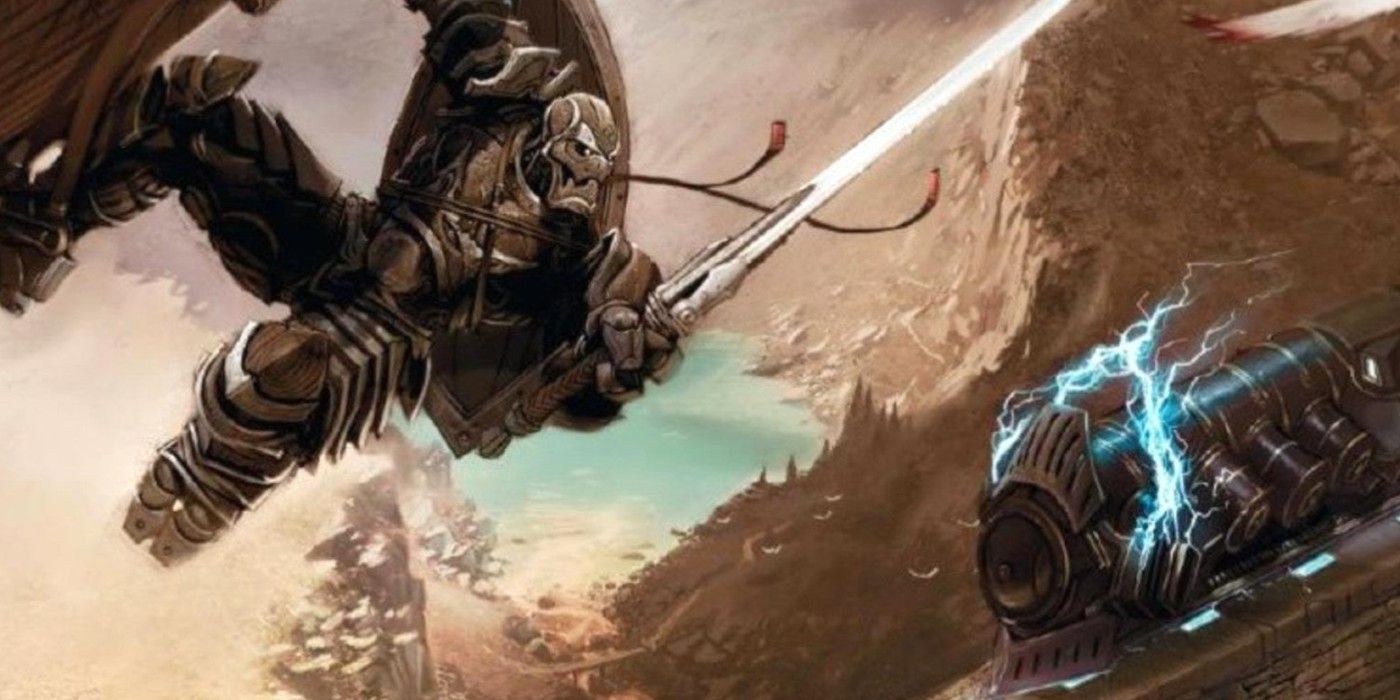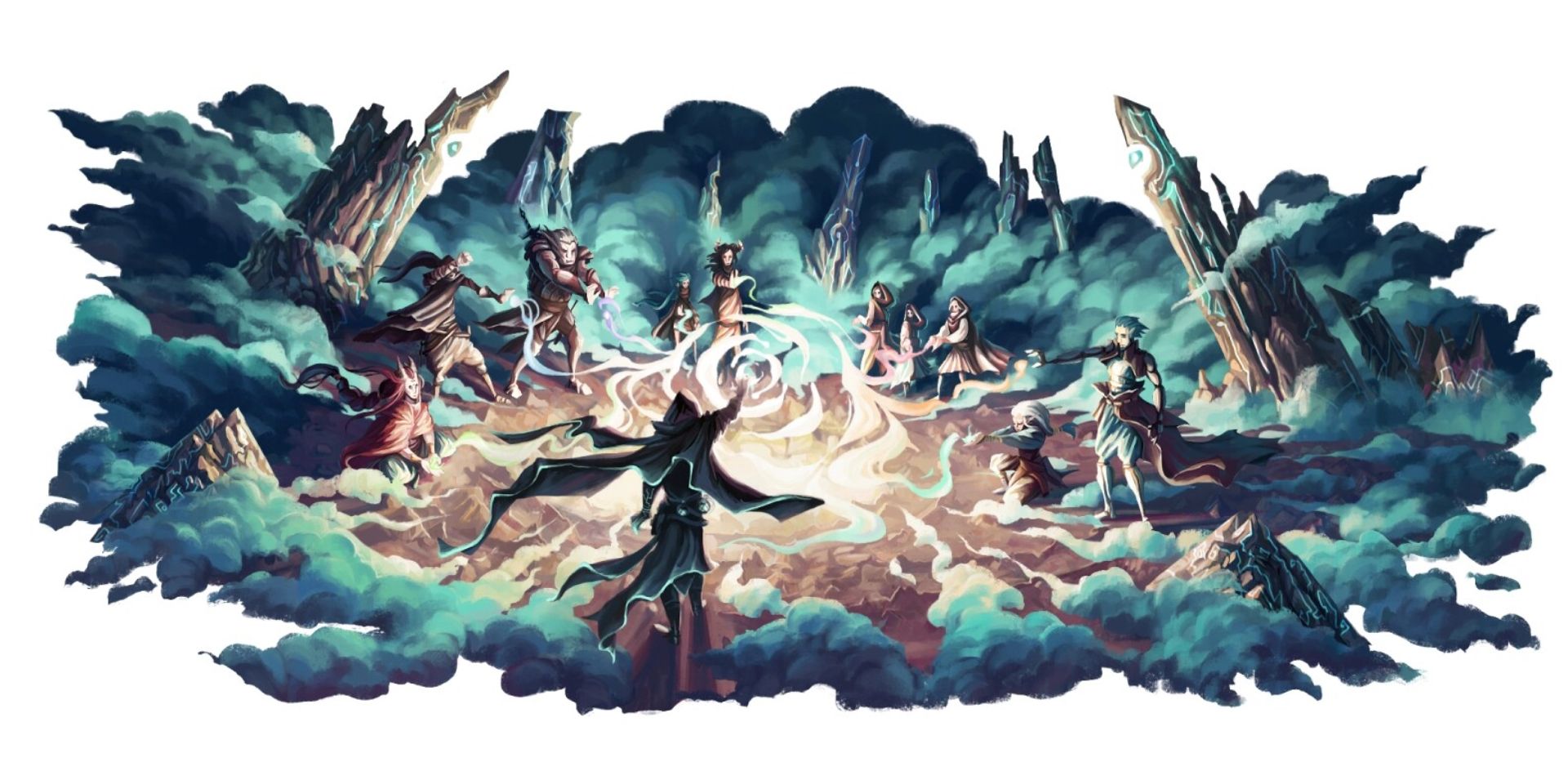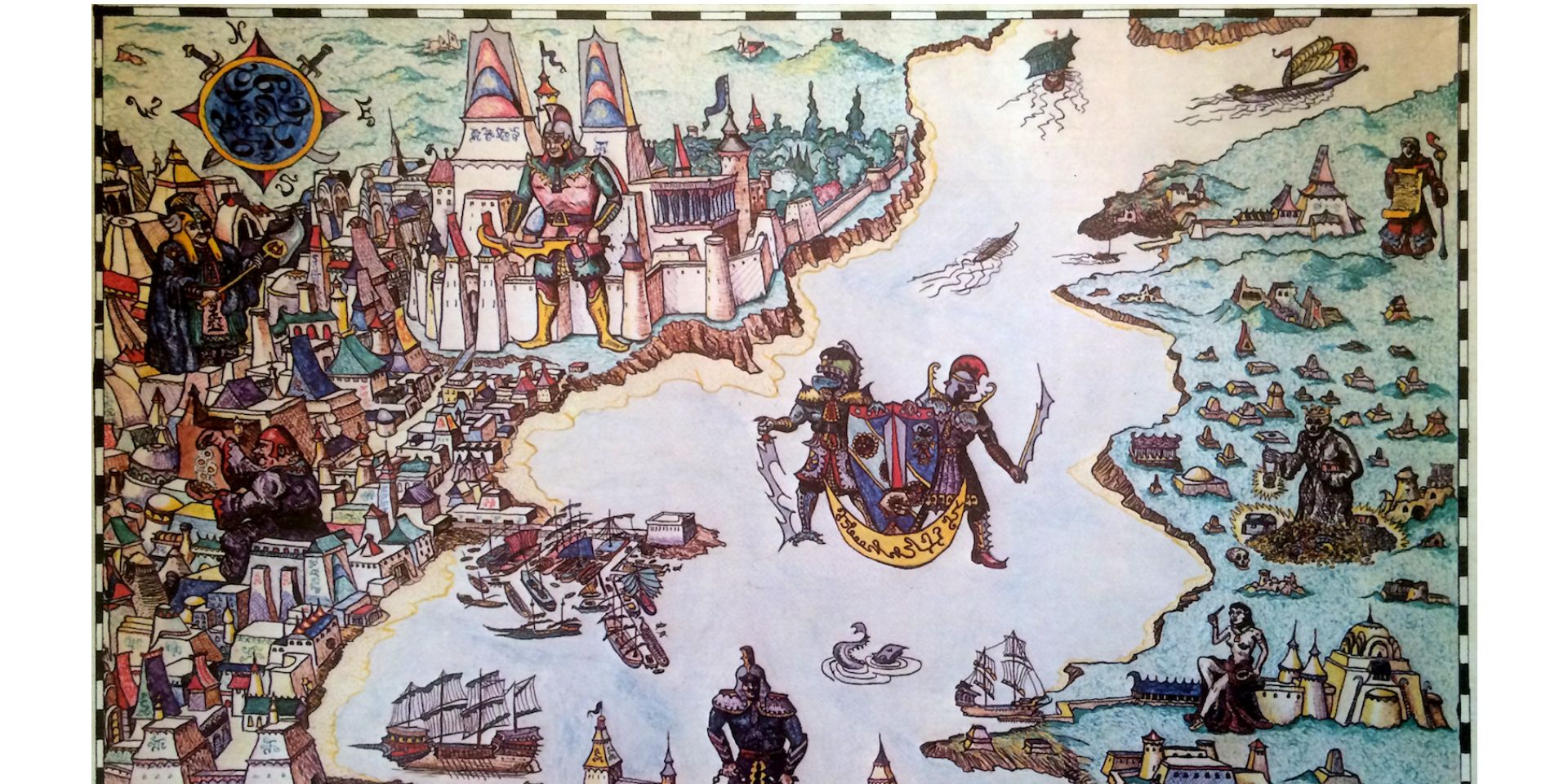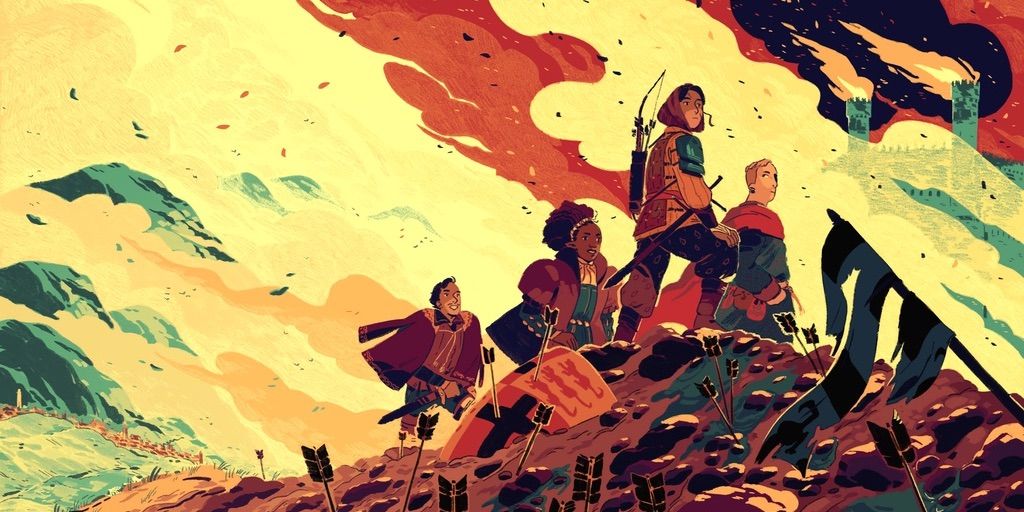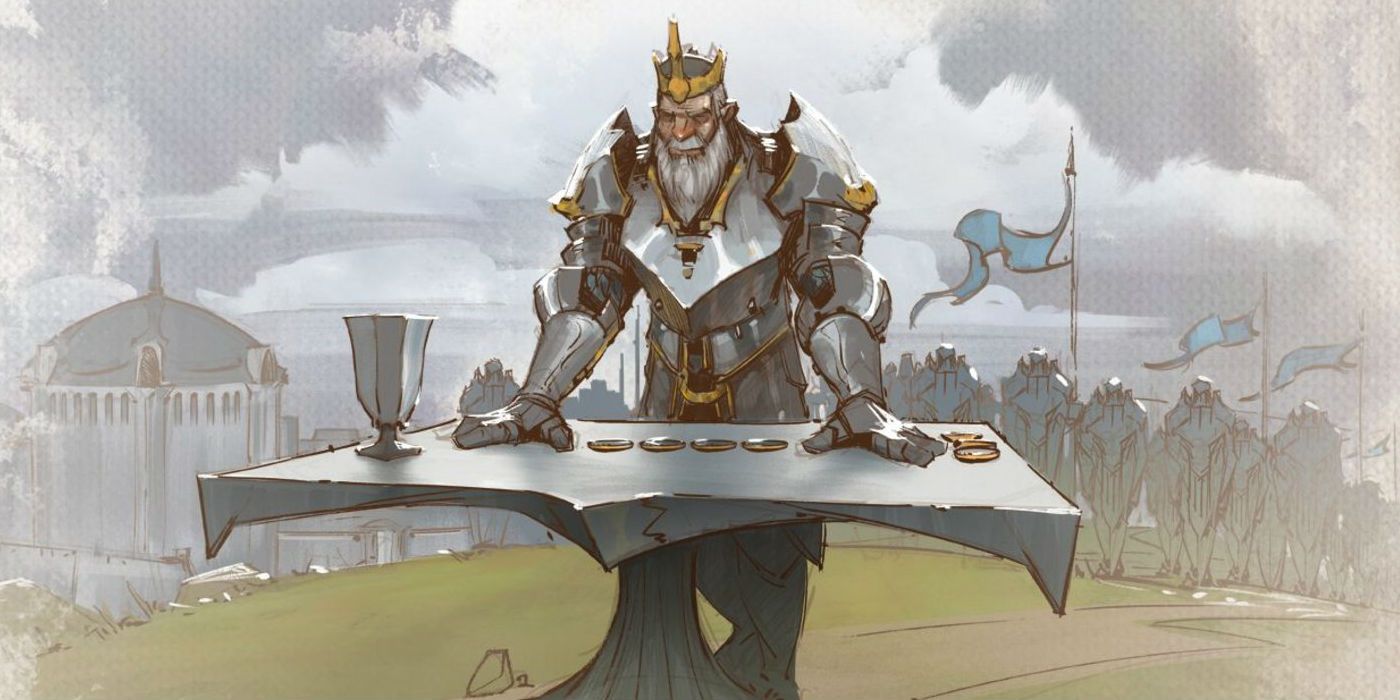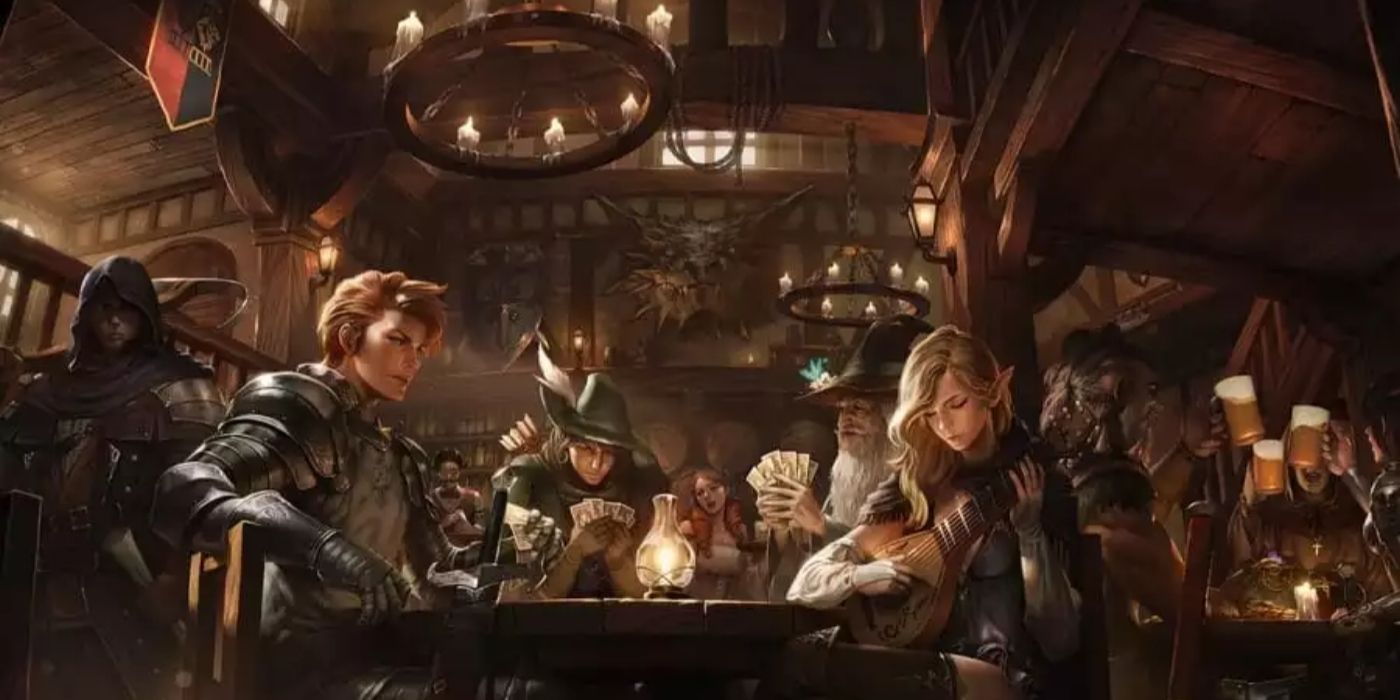In the sub-culture of tabletop RPGs like Dungeons & Dragons, two phrases rarely fail to send shivers down the spines of veteran role-players: "Murder-Hobo" and "Railroading". Beware of "Murder Hoboes," who disdain roleplaying in favor of making their player characters indestructible killing machines, but above all beware of "Railroaders," Game Masters who frustrate players by forcing their characters down linear, fixed story paths with few chances to be creative or make meaningful choices. Game Masters who wish to avoid straying down the dark path of the "Railroader" can consult the various tips below, suggestions on how to give players the freedom to make cool, surprising choices while still motivating them to care about the campaign's main plot.
Dramatic first-paragraph hyperbole aside, "railroading" isn't always bad in measured doses. In order to properly present their intricately-crafted stories, Game Masters/Dungeon Masters often need to briefly "railroad" their players using dramatic events to to nudge them in the right direction - enigmatic dreams, invading armies, ninja ambushes, storms that divert ships from their travel routes, etc. Even Old-School Revival-style "Sandbox" RPGs need a modicum of "railroading" to keep their players from being paralyzed by an excess of choices and a lack of purpose, something which especially holds true for "Pickup" or "One-Shot" games where the plot needs to be introduced and resolved in a single session.
"Railroading" becomes a sin when the Game Master/Dungeon Master of a roleplaying campaign becomes overly self-absorbed and obsessed with the "epic narrative" they've prepared, too enamored with the NPCs they've created, and too fixated on the battles and scenes of intrigue they want to present. In these scenarios, a Game Master winds up treating their players as accessories to their game, rather than accomplices in the process of telling a good story. The following "Counter-Railroad" Game Master tips, though different in detail, all boil down to the same general principle: "collaborate with your players instead of commanding them."
Game Master Tip #1: Talk With Your Players
Tabletop RPG sessions are essentially conversations between the Game Master and their player base. As a corollary, most problems that emerge in a tabletop gaming session stem from a lack of communication between GMs and players. Players often resort to "Murder-Hobo" behavior and "Power-Gaming" when they think their GM's sole goal is to murder their characters, while GMs "railroad" in excess when they think their players' sole objective is to wreck their intricately crafted storyline.
Players and GMs can easily nip these potential problems in the bud by having an honest talk about what they want before the game starts. In these "Session Zero" meet-ups, the GM can run their "high concept" by players to see if it's something they'd enjoy (a classic dungeon crawl, a sci-fi military campaign, intrigue in an imperial court, a heist in a dark cyberpunk future, etc.); in return, players can talk about the cool things they want their characters to do, giving GMs the chance to adjust their plot to fit player expectations.
Game Master Tip #2: Create a Detailed World Map With Blank Spaces
The "Powered By the Apocalypse" fantasy RPG Dungeon World has a succinct yet powerful piece of advice for aspiring Dungeon Masters: "Draw Maps, Leave Blanks." A proper RPG campaign world map, whether a classic Christopher Tolkien-style sketch or a futuristic start chart, denotes the scope of the universe players can explore, and more importantly, shows them where the most interesting, populous locations are.
When a GM lavishes detail on a fictional hi-tech metropolis called "The Vale Of Sparks," curious players are more likely to visit this location of their own accord. Furthermore, by leaving blank spaces in their maps – "Here There Be Dragons" patches of sea, uncharted sectors of the galaxy, etc. – the GM creates veils of mystery to be uncovered, empty spaces filled in by the ideas and desires of players.
Game Master Tip #3: Create Multiple "Quests" That Intersect With Player Choices
Both tabletop and computer RPGs often feature "Main Quests" and "Side-Quests" – big primary quests tied to the main plot of the campaign, and secondary quests that deal with smaller localized issues and the troubles of individuals. Game Masters who "railroad" in excess will often focus on their "Main Quest" plot-line at the expense of their "Side-Quests," constraining players who want to explore the nooks and crannies of the world presented to them.
Nothing is more frustrating for an RPG player than hearing about a spooky mountain and being told they can't go there, but by creating multiple "Quests" for players to follow, Game Masters will have an library of interesting characters and sub-plots they can pull out to entertain their players in a pinch. Ideally, these multiple Quests should be tied to different locations in the campaign worlds, or linked directly to the backstories of player characters.
Game Master Tip #4: Slow Down The Story If You Need Time To Improvise
Sometimes Game Masters "railroad" their players because they're inexperienced or rigidly clinging to the original story concept of their RPG campaign. Other times, Game Masters engage in "railroading" behavior out of sheer panic, trying to bring their game back on track after their player choices send all their plans crashing down. In situations like these where "the train has leapt the tracks" and the GM doesn't know what to do next, it's often best to just slow down the pace of the story.
Sometimes this means ending a session early and resuming the story next week. Alternately, the GM can run game sessions where their fantasy heroes shop for supplies, go bar-hopping, or visit old friends - peaceful, community-focused RPG narratives where the players generate session's plot through inter-party conversation. What's important is that the GM buys themselves time to calm down, think, and figure out what will happen next.
Game Master Tip #5: Be Fans Of The Players And Their Characters
In a tabletop roleplaying game session, the players and their characters are the heroes of the story, not any of the NPCs created by the Game Master. Accordingly, one of the most important duties of a Game Master is to be a fan of the player's characters - cheering them on when they triumph, consoling them when they're defeated, and expressing pride when they do something clever or emotionally stirring.
Even in a scenario like the infamous Dungeons & Dragons module "Tomb Of Horrors" where nearly everything is trying to kill the PCs, the Dungeon Master/Game Master should always be encouraging players to overcome the challenges set before them. With a mindset like this, players going "off the rails" won't be a cause for alarm, but a reason for the GM to celebrate.

